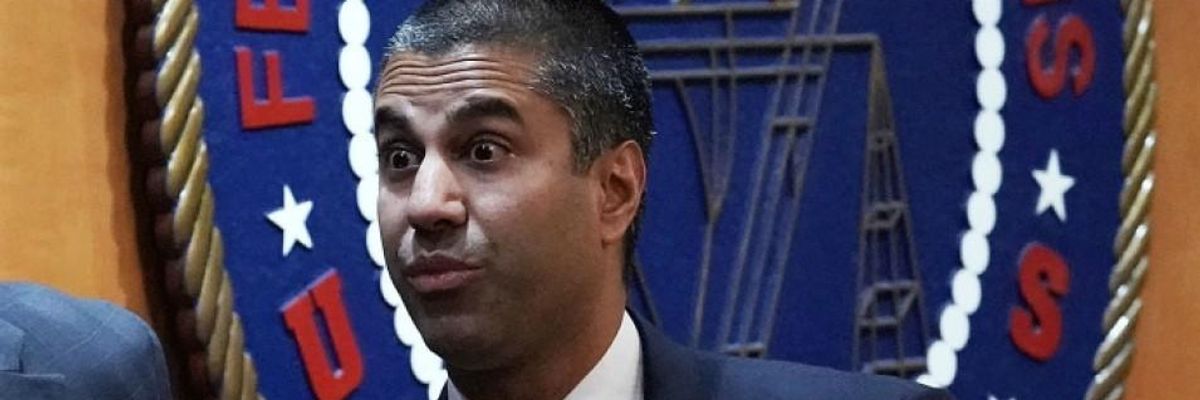The telecom industry and Federal Communications Commission (FCC) Chairman Ajit Pai justified the Republican repeal of net neutrality protections in December of 2017 with promises that a "light-touch framework" would spur investment, giving broadband providers "stronger incentives to build networks, especially in unserved areas, and to upgrade networks."
"The cornerstone of Ajit Pai's net neutrality repeal order has quickly crumbled."
-- Gigi Sohn, former FCC lawyer
However, according to recent reports, in the year after the repeal--which officially took effect last June--cable companies' investments actually fell, just as net neutrality supporters had warned they would.
Those fighting the rollback pointed to the declines in spending as just one piece of evidence that the deregulation push by Pai--a former Verizon lawyer appointed by President Donald Trump--was always designed to benefit industry at the public's expense.
"The repeal of net neutrality is nothing but a massive government handout to some of the most unscrupulous, and least popular, corporations in the United States," Fight for the Future's Evan Greer told Motherboard. "It's not helping workers at these companies. It's not helping people in rural communities. It's not closing the digital divide."
"Sorry, [Ajit Pai]: Your sloppy attempts to tie network investment to your #NetNeutrality repeal just don't hold water. And they never did," tweeted Tim Karr, Free Press's senior director of strategy and communications.
Comcast's overall expenditures increased in 2018, according to an earnings announcement released Wednesday, but "Cable Communications' capital expenditures decreased 3.0 percent to $7.7 billion, reflecting decreased spending on customer premise equipment and support capital, partially offset by higher investment in scalable infrastructure and line extensions."
While Comcast is one of the nation's largest Internet service providers (ISPs), as Ars Technica, noted: "Comcast isn't the only ISP that lowered network investment last year. Charter and Verizon both said in 2018 that they were reducing capital expenditures." And that trend is expected to continue in 2019--at least, for Comcast and Charter--according to MoffettNathanson estimates cited in a Light Reading article this week.
In addition, as Ars Technica reported, "The net neutrality repeal hasn't closed broadband gaps in rural areas, where industry trade groups say they won't expand service unless the government gives them more direct funding," arguing that without such assistance, the return on investment wouldn't be worth it.
As Gigi Sohn, a former FCC lawyer who helped craft the repealed net neutrality rules, concluded in an email to Motherboard, "The cornerstone of Ajit Pai's net neutrality repeal order has quickly crumbled."




